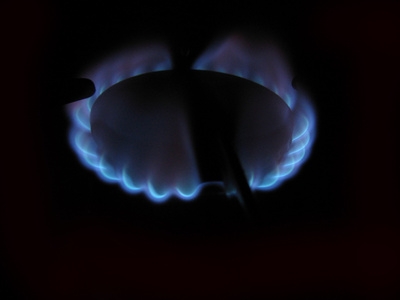
Most of us are familiar with natural gas from the blue flame it produces when we turn on the stove top. However, clean-burning natural gas has more uses than just cooking. As with other energy sources, there are pros and cons to using it.
Natural gas is used to generate electricity, serves as an alternative to gasoline, can be used to generate hydrogen and helps create fertilizer.
According to the Natural Gas Supply Association, natural gas is the cleanest burning fossil fuel. Combustion of natural gas primarily produces carbon dioxide and water vapor. Other emissions include small amounts of sulfur dioxide, nitrogen dioxide, carbon monoxide and reactive hydrocarbons. According to the Environmental Protection Agency (EPA), natural gas--fired power plants produce less than half the carbon dioxide of a coal-fired plant. Coal and oil also produce ash particulates that contribute to air pollution such as smog, while natural gas does not.
While it is a cleaner burning fuel, natural gas can still contribute to global warming. Methane, one of the main components of natural gas, is 21 times more effective at trapping heat than carbon dioxide, according to the Energy Information Administration. While methane only makes up about 1.1 percent of U.S. greenhouse gas emissions, because of its potential for global warming, it counts for 8.5 percent of emissions, reports the Natural Gas Supply Association. Like the other fossil fuels, it is a nonrenewable resource that takes thousands of years to form.